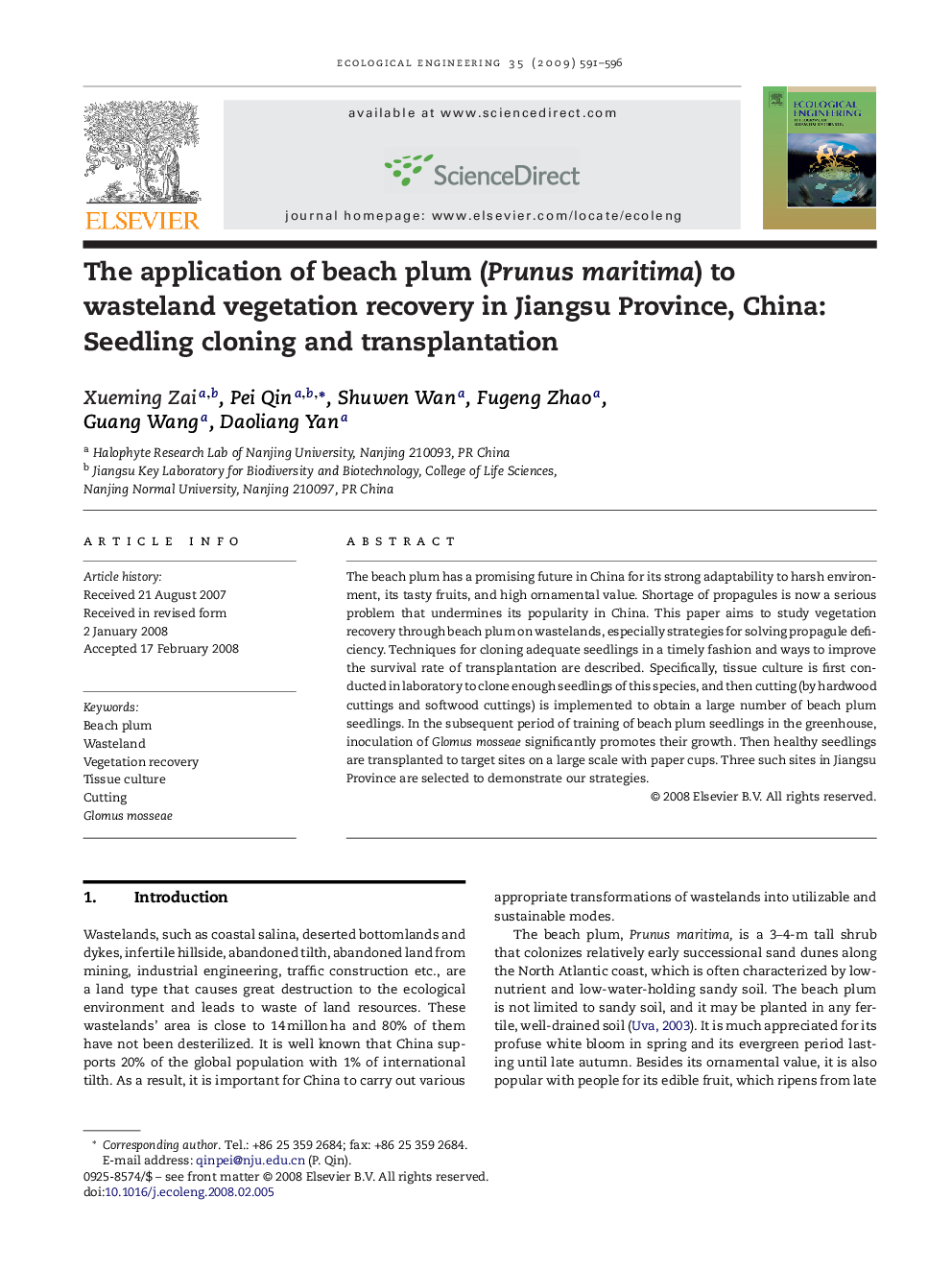| Article ID | Journal | Published Year | Pages | File Type |
|---|---|---|---|---|
| 4390992 | Ecological Engineering | 2009 | 6 Pages |
The beach plum has a promising future in China for its strong adaptability to harsh environment, its tasty fruits, and high ornamental value. Shortage of propagules is now a serious problem that undermines its popularity in China. This paper aims to study vegetation recovery through beach plum on wastelands, especially strategies for solving propagule deficiency. Techniques for cloning adequate seedlings in a timely fashion and ways to improve the survival rate of transplantation are described. Specifically, tissue culture is first conducted in laboratory to clone enough seedlings of this species, and then cutting (by hardwood cuttings and softwood cuttings) is implemented to obtain a large number of beach plum seedlings. In the subsequent period of training of beach plum seedlings in the greenhouse, inoculation of Glomus mosseae significantly promotes their growth. Then healthy seedlings are transplanted to target sites on a large scale with paper cups. Three such sites in Jiangsu Province are selected to demonstrate our strategies.
